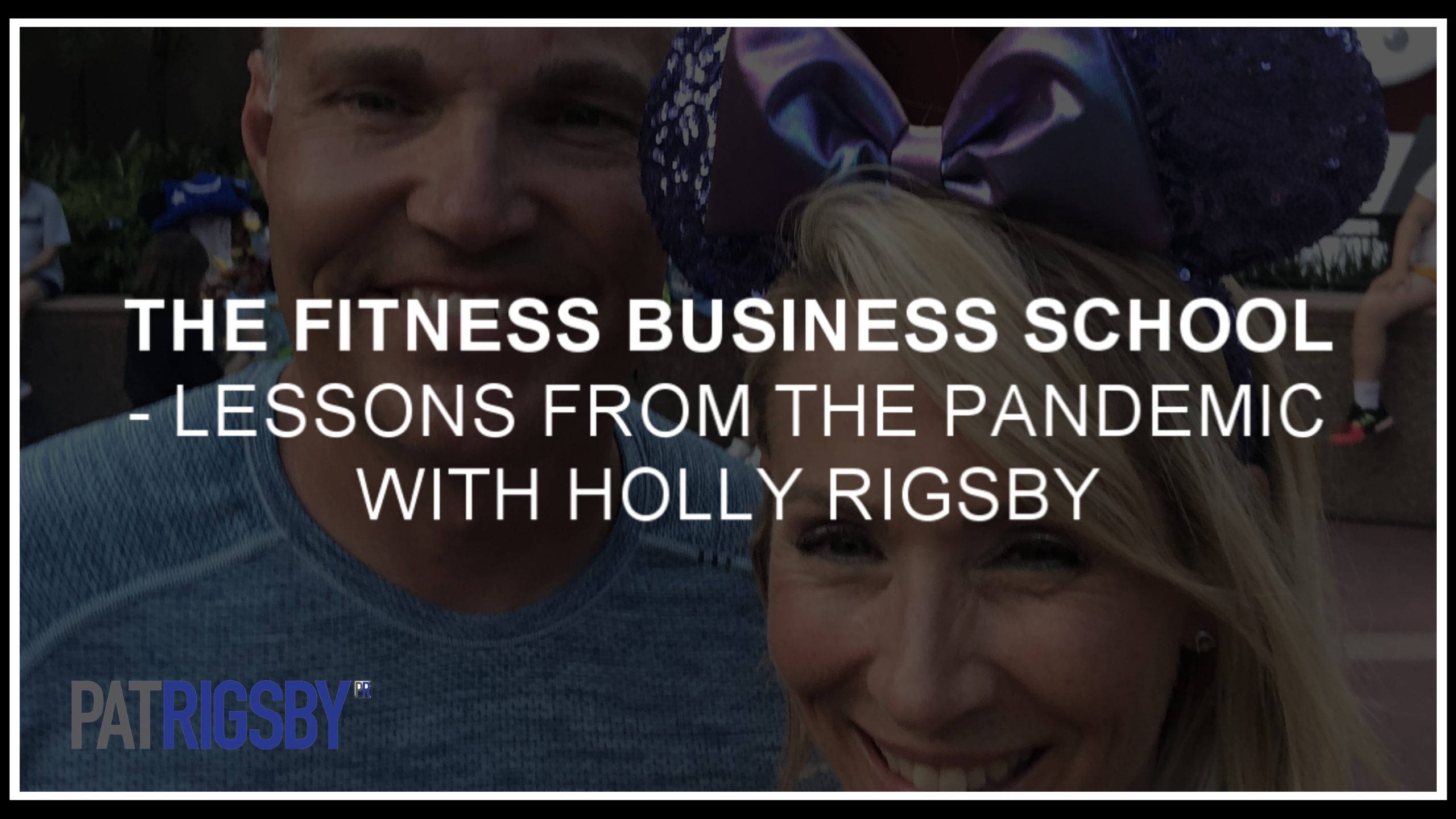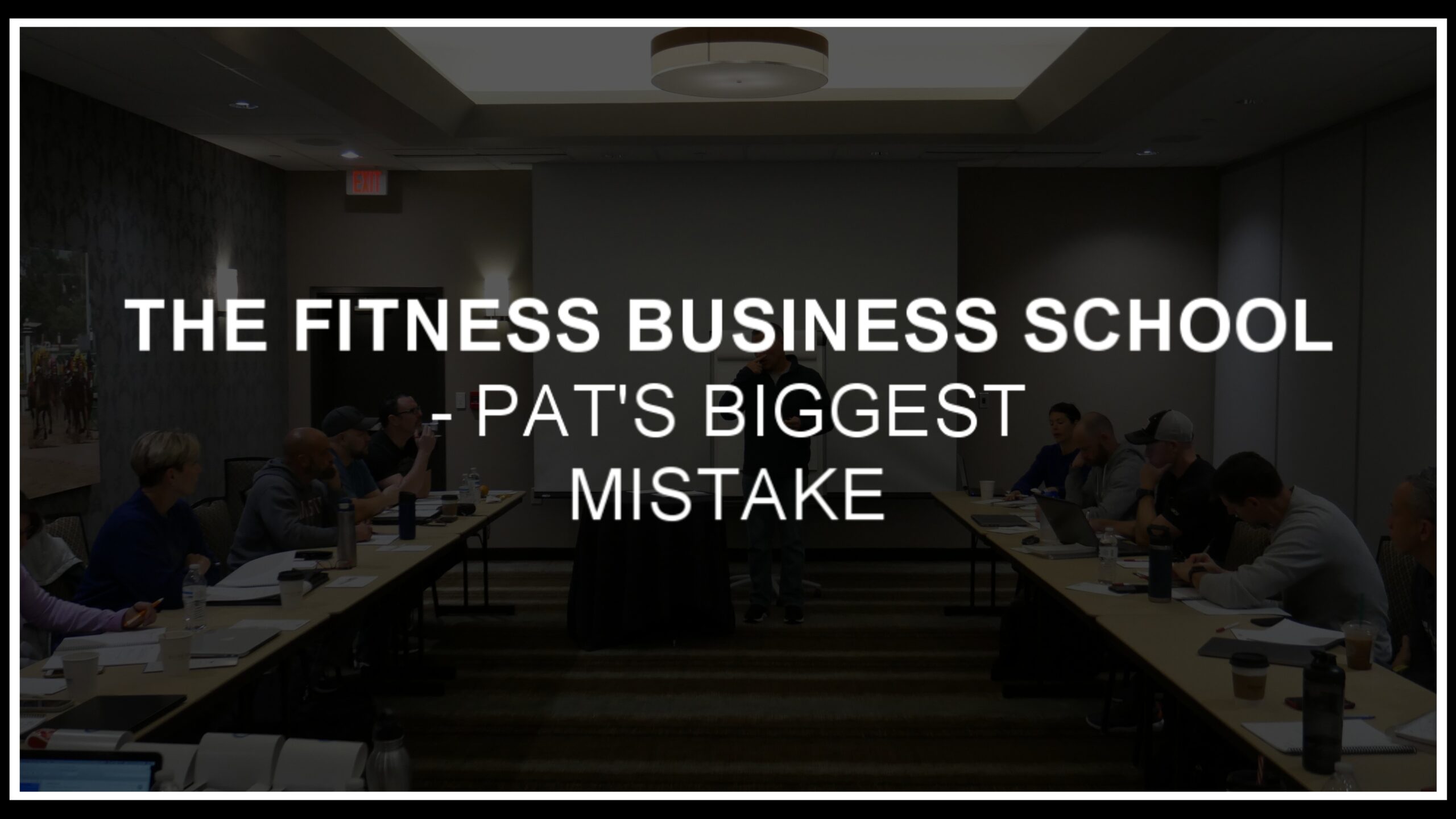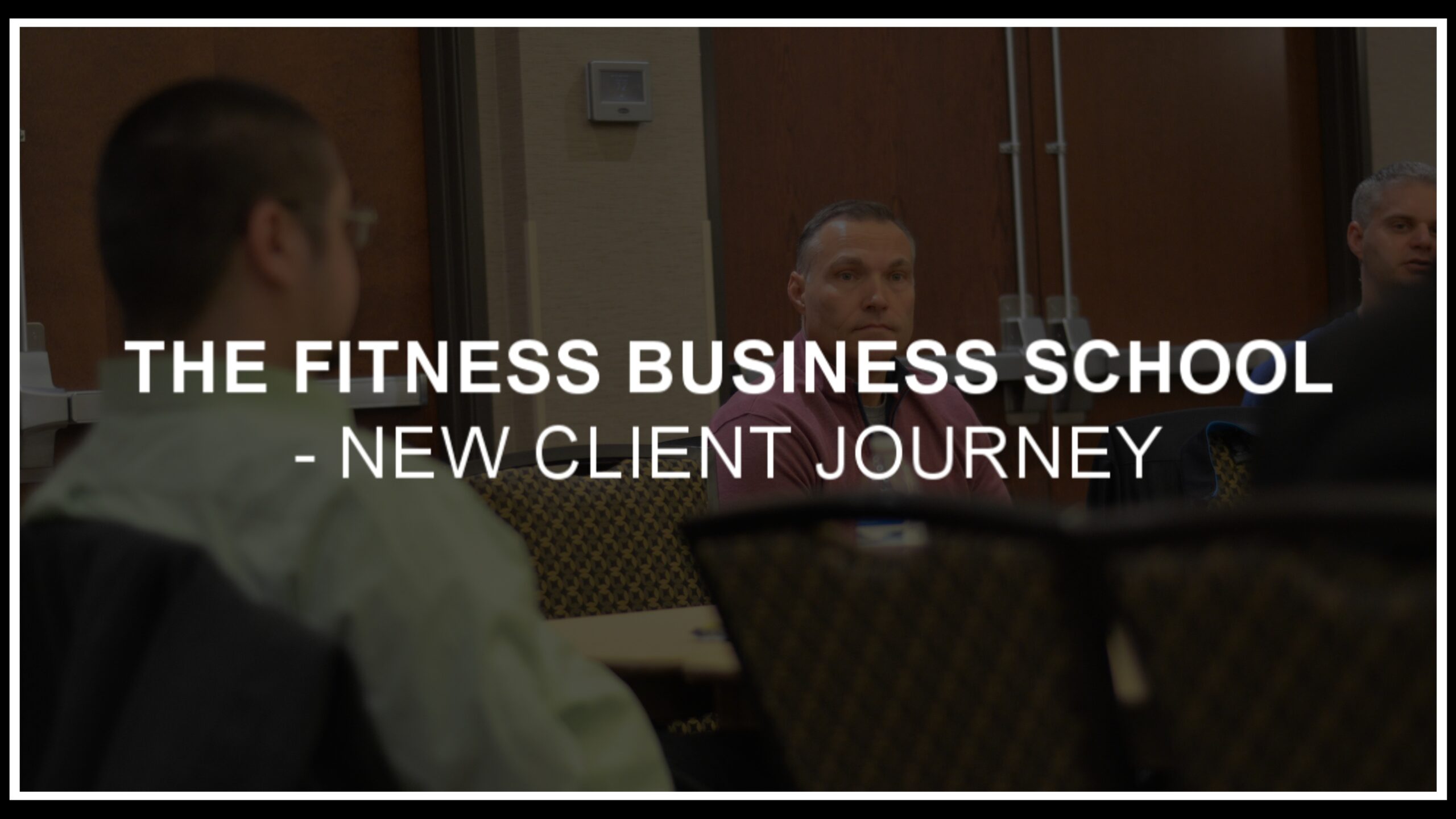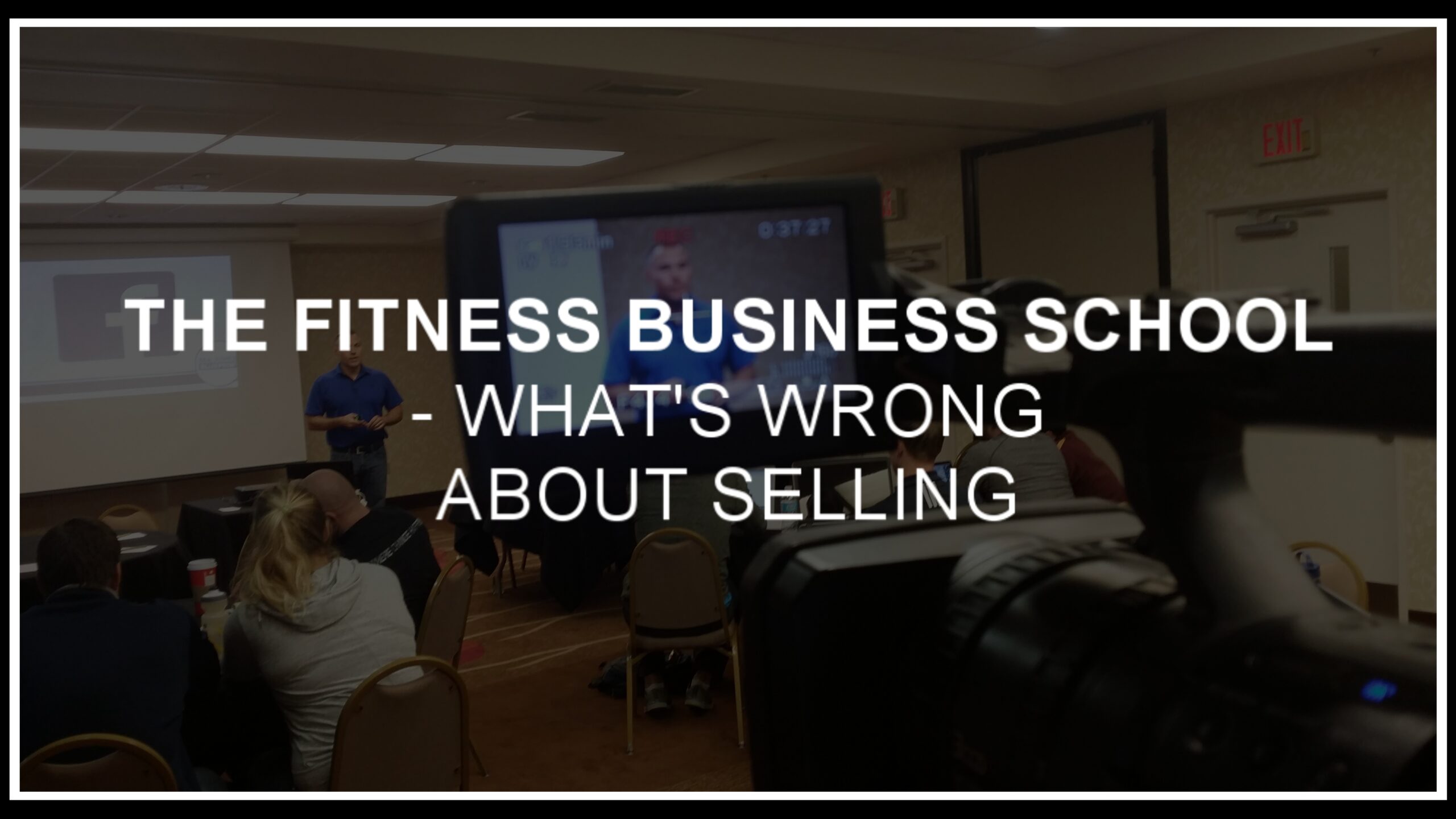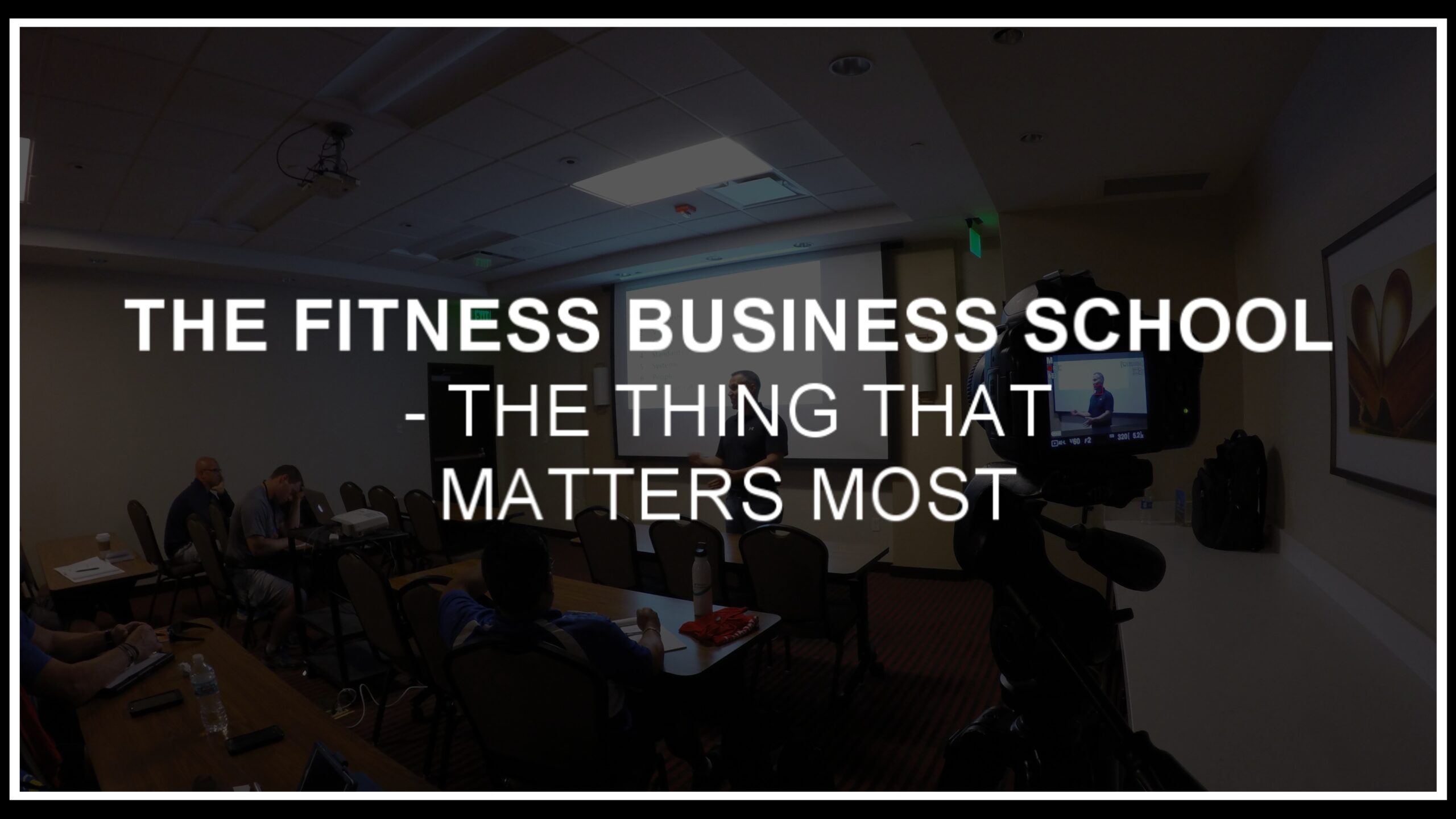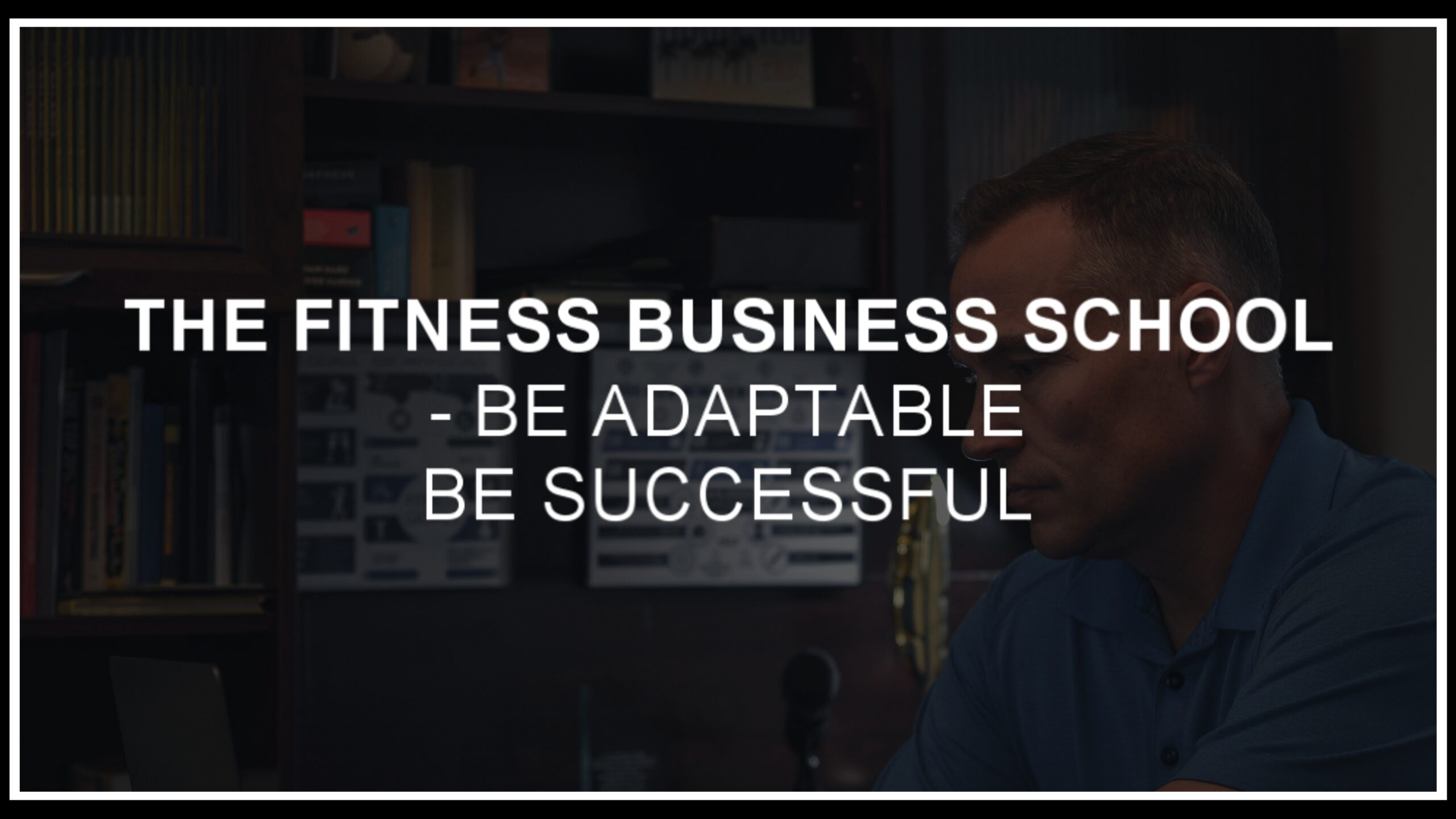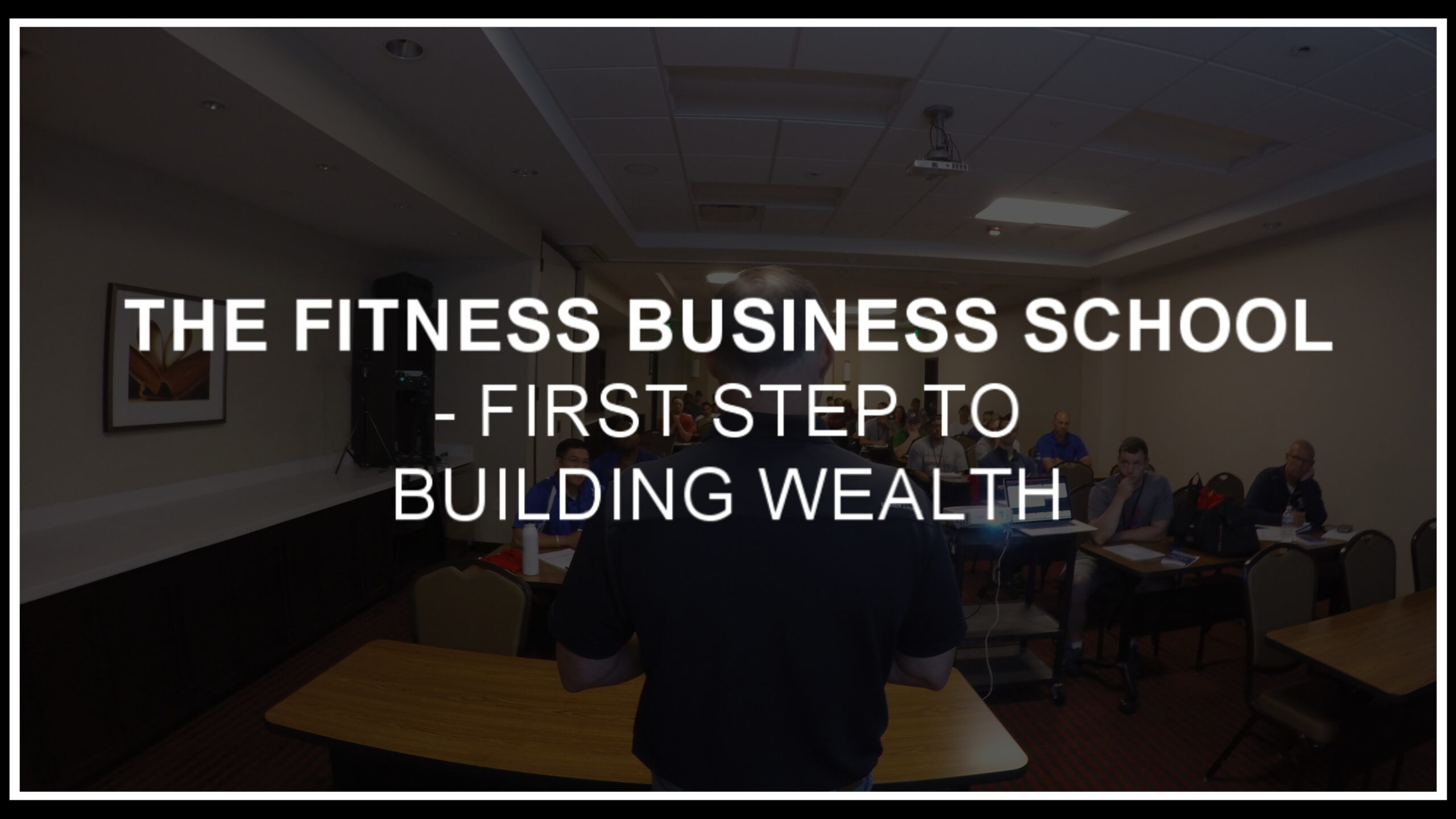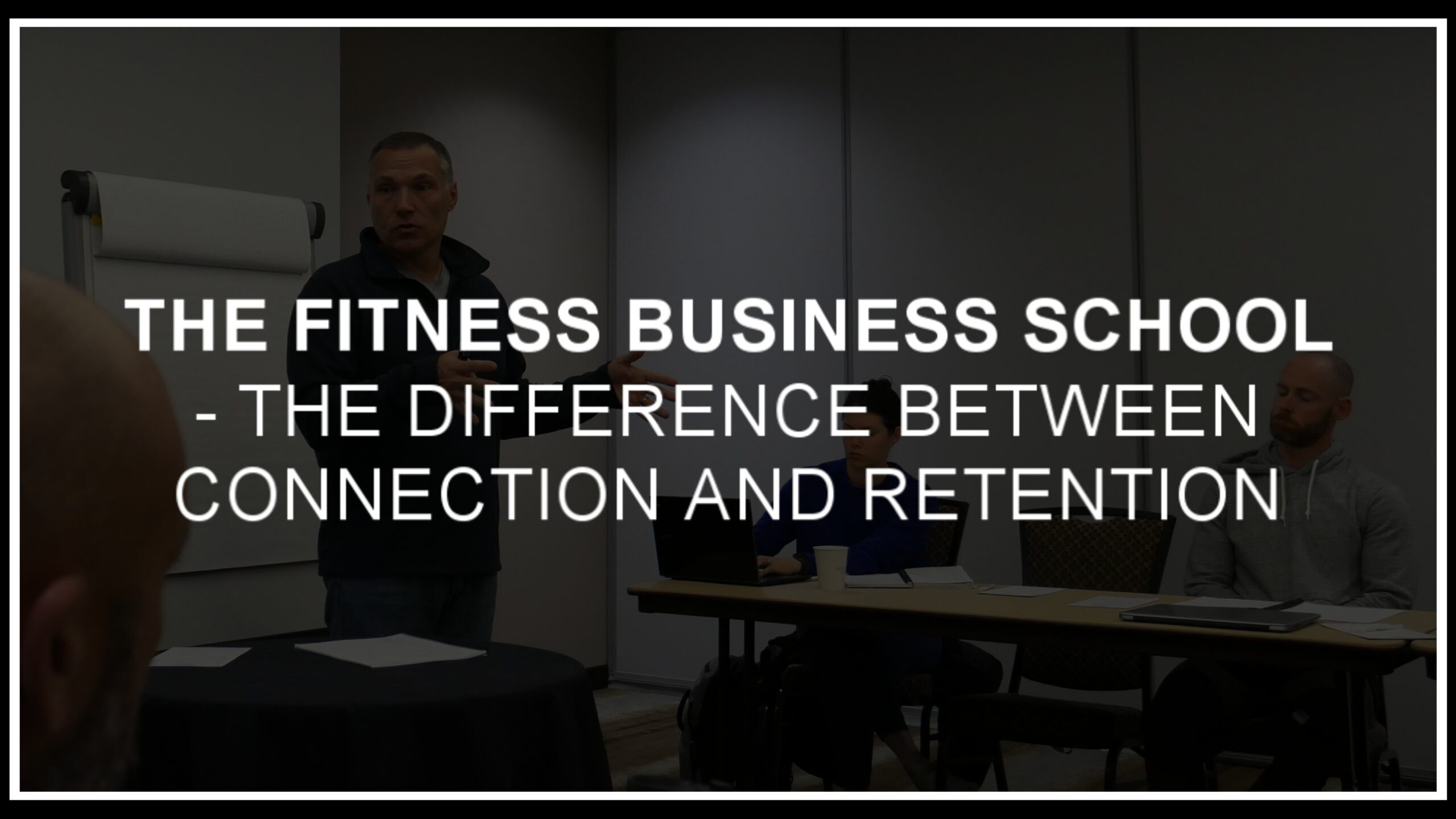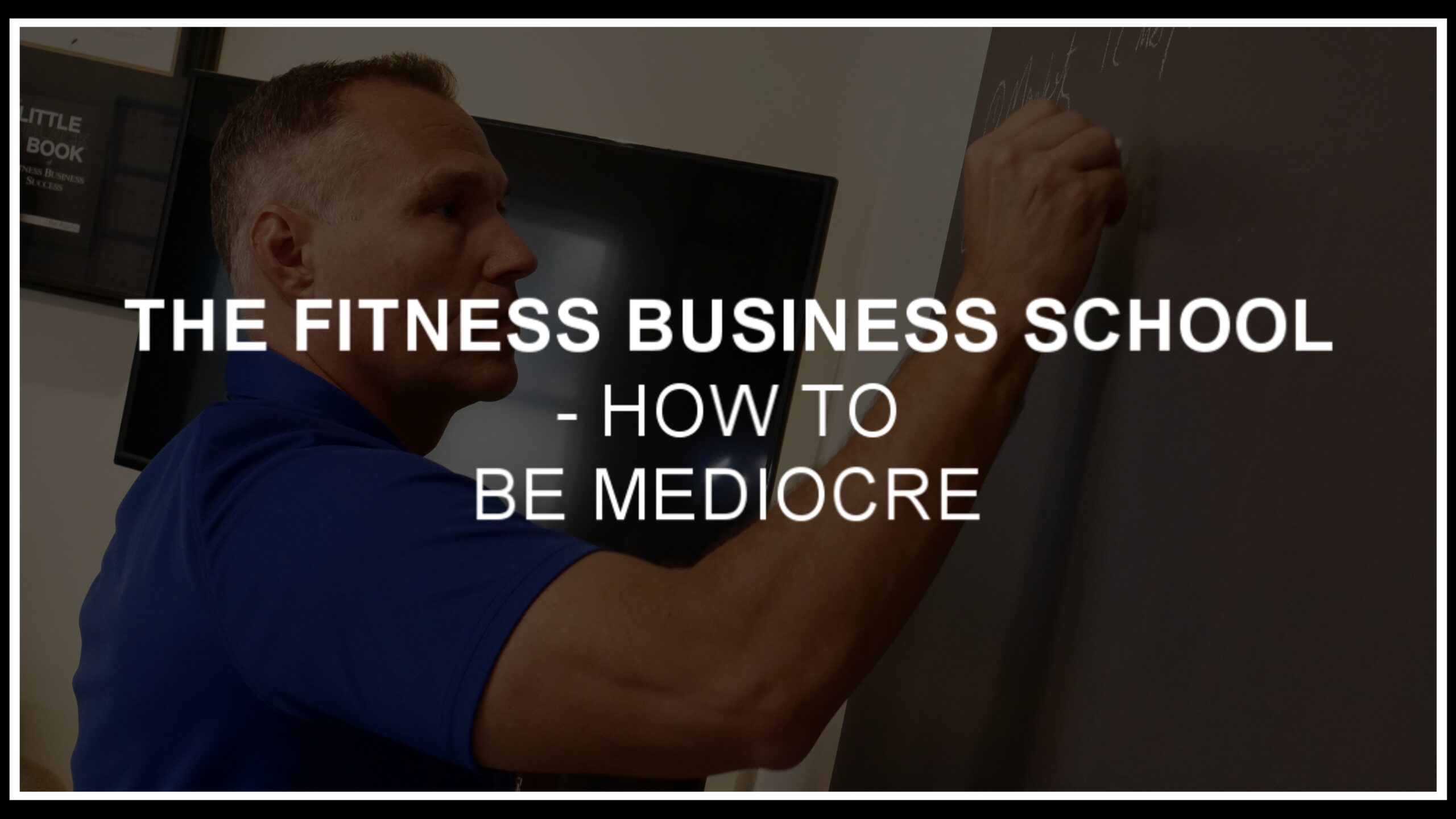Show Notes
In today’s episode we’re going to discuss a lesson that many business owners miss: The fact that you can’t have your ideal business while your building your ideal business.
- Pat is joined by his wife, Holly
- They discuss working from home
- Having patience with others in your home is importantly
- Social media discipline is talked about
- Control what you can control
- Having a routine and daily expectations has been helpful
- Developing new skills and growing isn’t necessarily attainable during crisis
- You can get through more things easily if you are adaptable
- Holly counts her blessings from the pandemic
P.S. – 6-Weeks of Coaching…Free.
Get a surge of new clients and revenue over the next 6 Weeks with ZERO FEE and no obligation to continue?
If you’re a current business owner who wants to add 50K or more in annual revenue over the next 12 month, you can Test Drive our coaching program for 6 Weeks with no fee or even an obligation to continue as a way to demonstrate how we can help you grow your business.
No strings attached. No obligation. You get our best coaching & tools…and hopefully, you’ll love it enough that you want to keep working together.
Would you be interested in discussing?
If so, email me here with ‘interested’ in subject line and we’ll set up a chat.
Full Transcript
Hey Pat Rigsby here. And in this episode I have my lovely wife Holly on, and we’re going to talk about the lessons that we’ve learned while navigating the stay at home order through the pandemic. So let’s go get started.
Welcome to the fitness business school with Pat Rigsby, the podcast for fitness entrepreneurs who want to make more income, have greater impact, and enjoy more freedom in their ideal business. If you’d like an accelerated route to these goals, email me at [email protected] and put BGA in the subject line and I’ll get you all the details about our business growth accelerator program.
Hey, it’s Pat and I have my lovely wife Holly with me and we’re going to talk about how we’ve, I guess, navigated the pandemic, the stay at home order, and really more importantly, the lessons that we’ve learned or things that we’ve kind of realized through all of this. So first off, welcome Holly.
Hi. Happy to be back. Well, we’re happy to have you here. So does anything really stick out as far as things that you’ve learned, things that you’ve maybe grown to, to embrace or anything like that through all of this?
Well, I find it interesting because we both work from home. So we, we’ve already been home and I think the biggest difference is that now we can’t really like leave the house to run errands or take a break and plus the kids are with us the whole time too. So the biggest change I think or the lesson learned is that understanding that now we’re all under close quarters and being able to practice patience and giving each other enough space when we really feel like we’re constantly on top of one another.
Yeah. I think that you know, probably having different expectations of other people and having more patients, things that might have gotten under your skin earlier, my skin earlier or whatever else, having the, the patience to kind of roll with it because, you know, we don’t have the luxury of a lot of the things that maybe traditionally that we’ve done to get a change of scenery or just kind of blow off steam or do a reset because, you know, I know a lot of people, they’re not used to working at home and I know that we, we’ve had that luxury of doing that for quite some time and we even did an episode about it earlier. But yeah, I mean I think there’ve been a few things that I’ve picked up through all of this and you know, I’ll share a little bit of that and see what your thoughts are a bit. One has been this kind of understanding that, you know, there’s so much input coming our way and you have to filter what, what’s coming to you or else it can be consuming. I mean, I know in our state there is a press conference every day. I mean there’s a nonstop barrage on social media and if you’re kind of just sitting back and reacting to that stuff, I mean it can be paralyzing. I mean there’s nothing to…there, there’s almost nothing to gain from it. Sure. We all have to be aware, we have to be informed but it seems like you’re just constantly backpedaling with new information and updates on whatever’s happening that day and you know, if you don’t caution yourself from that, then you know it can consume so much of your mental bandwidth. You may not accomplish much else.
I agree. I think the first week I was really tuned in and trying to see what was changing what was happening and I felt like once I had like a week’s worth of news under my belt and things were progressively shutting down, it just, that’s what it was. Everything was shut down. I don’t need to know any more information about what’s happening cause now we know that we’re going to be home, we’re going to stay safe, we’re going to re-prioritize based on that. And I don’t need to constantly be tuning in to hear what else is going on. Cause it just becomes, it’s, it’s, it’s a distraction and it’s just so emotionally heavy as well. So that, you know, that was a big lesson and I guess I don’t know that it was a new lesson. It’s something that I know that both of us have taught our people, but I think it’s been magnified over the last several weeks is this whole mentality of controlling what you can control. And you know, we, we obviously probably have less control over any number of things than most of us have had in our entire adult life, but there’s still so much we can control. I know you’ve been doing a lot and I’ll ask you to talk about that in a moment. But you know, I know for the business owners that I get to work with you know, controlling how they’re communicating with their clients. Controlling what they’re putting on social media, controlling whether or not they’re really kind of playing offense versus just kind of backpedaling and playing defense you know, controlling how their maybe remodeling their business or reinventing their business model. Whether or not they’re going out and marketing and then also, you know, whether or not they’re, they’re shutting it off and not letting professional bleed into every waking hour of the day and they’re actually making some time for their own self care. They’re making some time for their family. These are all things under their control. And you know, I think I’ve been reminded of that on a daily basis. And you know, honestly I think that we’ve probably done a pretty good job with it, but I also know that it’s our responsibility to lead by example. So we kind of had to so you won’t talk about some of the stuff that you’ve worked on with your women about kind of taking control of what’s going on in their world.
Yeah, we start off by making sure that they understand the very first thing that they can control is a morning routine because we know the power of a morning routine, how you wake up and spend that first hour of the day will dictate the mood, the direction, the momentum of your day. So we really focused on making sure they established a morning routine and then from there a daily plan like give yourself a schedule. This is not the time to kind of wing it or just get by. We need to have a structure. And I explained to my moms as well, our kids need a structure. I mean cause their worlds are up sideways and upside down as well. And if anything it is comforting to their children to have some type of expectation of what’s going, going, excuse me, what’s going on during the day? And then outside of that one of the biggest concerns was this whole, how do I school my kid? So really helping moms to understand that they are facilitators, not teachers. And we have to be able to get the information that we need. What is the bare minimum? And really being able to practice what is, what’s good enough because everybody is going to be struggling with this. Everybody’s going to be having to face where or when we do get back into the school system and it’s not our job as parents to try to do everything perfectly and to be a teacher. So what can we control in those situations? It’s a matter of saying, okay, I’m going to look at what the guidelines are for what, how much, how many hours a day my child is supposed to do school and what does that look like? So communicating with the teacher, asking questions and then outlining what, what are the priorities for each day to make sure that my, my child is getting the work done that is expected.
Very cool. So there were a couple other lessons that really kind of stuck out for me. One was I think just changing expectations or having realistic expectations. I mean, you see so many posts on social media, Hey, you need to use this time to essentially, you know, climb the Mount Everest of education and you need to you know, accomplish all these things and all this other stuff. And, you know, it’s almost like people are saying, well, okay, you’re at home in unprecedented times, so block all of that out and accomplish more in the next six weeks than you’ve accomplished in the last six years when it comes to personal development or self-improvement or whatever else. And well, you know, I, I definitely think that you know, we all should be making sure that we manage our input and we should all be trying to do things that are productive, fulfilling, and give us a sense of accomplishment. Because I think that’s part of just staying sane you know, this, this idea that, you know, we’re, we’re supposed to accomplish so much more because we’re at home I think is almost set people up to fail. And you know, I, I don’t think I fell into that trap and I’ve tried to caution a lot of people to, to just have realistic expectations. There are things that we are in control of, but you know, this, this wasn’t some thing where we all self-selected and said, Hey, you know what? I’m going to hunker down and I’m going to be more productive than ever know this. This was kind of imposed on us and you know, everybody’s got their own way of coping with it and you know, there’s no rule saying that, you know what, you don’t have your normal outlets and your normal stress relievers some of the time. So it’s okay if sometimes you just decompress and sometimes you don’t feel like being super productive and you know, you can certainly turn it back on after you’ve recharged. But I think setting realistic expectations through all of this has been a pretty big deal. So any thoughts on that?
Yeah, I agree with that as well because what’s, when those things are being said, you have to kind of look at the source too. I know that from my clientele, moms who are now stuck at home with a husband who used to leave the house to go to work, now the husband’s there on top of all the kids on top of their normal responsibilities and they’re stressed to the max and to be made to feel like they should be utilizing their time to better themselves doesn’t account for the emotional and mental bandwidth that’s already been taken this big hit. Just trying to find their footing in this new environment and navigate the relationships completely differently without this pressure that they’re not using their time wisely. So I agree that you have to really take a step back and yes, we’re always looking for ways that we can better ourselves, but in a way I think that by just being able to take a breath and say, this is what I can focus on, this is what I can control. That is really setting the stage for habits that you can take with you after the pandemic. More so than like you said, hunkering down and doing some type of personal development course.
Yeah. And I think that’s a pretty sound segue into this. This last lesson that I had been thinking about is just being willing to be adaptable and persevere instead of sitting back and complaining the entire time and playing the victim, you know, adapting to your circumstances and making the best of them. You know, I think we’ve traditionally, we’ve had you know, any number of vacations or weekend getaways and clearly we haven’t had that opportunity now. And I think we’ve adapted well and enjoyed our kind of downtime. And you know, and with the boys, they’ve, I think to their credit, they’ve adapted really well to, I mean, normally Alex would be seeing friends at school every day and in the middle of baseball season and Tyler would be graduating high school and, you know, all the, the kind of achievement and pageantry that goes along with that. And, you know, I think that just saying, you know what, this is the hand we’re dealt and we’re gonna play it and we’re gonna ride it out and not saying, well, Hey, we’ll be able to do X next week or we’ll be able to do, you know, this thing on Monday. And just saying, look, you know, whatever the circumstances are, we’re going to make the best of it. And you know, I think that’s, those are lessons or traits that will serve us well for, for hopefully a long time moving forward.
Anything else that you want to share or any final thoughts from you? I just, I’ve just found a lot of hidden blessings in this, a pattern interrupt to our busy life that I’m really excited to be able to dive into with my moms and help them to kind of decipher what types of habits that they want to take with them. Cause I know I’ve really been grateful for the additional time with both of my boys because like Patrick said, Alex would be busy with baseball and I wouldn’t have the time that I have with him right now and doing like, like reading together and doing schoolwork together and doing projects together. That was stuff that was all delegated to a teacher in a classroom. And I get to do that with him. And then with Tyler his senior year, I at the start of 2020, I’m like, Oh my gosh, the time is ticking. I only have like six more months with him until he’s gone. And then this was like a gift that I get all this extra time with him before he does leave. So I think it’s more of really just being grateful for the gifts that this pandemic has provided for our family and really being able to soak that up.
All right, well Holly, thank you for hanging out and sharing some of the takeaways you’ve had. You know, I’d encourage you guys to maybe do a little bit of self reflection as well. And think about the lessons that you’ve learned from this. Yeah, sure. This is typically, you know, pretty much a business podcast. So maybe there are a number of business lessons that you’ve learned about how you can remodel, how you can do things better and set self up to thrive going forward. But also think about the personal lessons, the family lessons, all the things that really go into you know, allowing you to live the life you want to have and have that ideal business and the ideal life we talk so much about.
Thanks for listening. I’m giving away a bundle of my bestselling books, the ideal business formula, the fitness entrepreneur handbook in the path. All you have to do is go to patrigsby.com/podgift to get it. Also, make sure to subscribe to The Fitness Business School with Pat Rigsby so you don’t miss an episode and you get yourself on the fast track to creating your ideal business.


